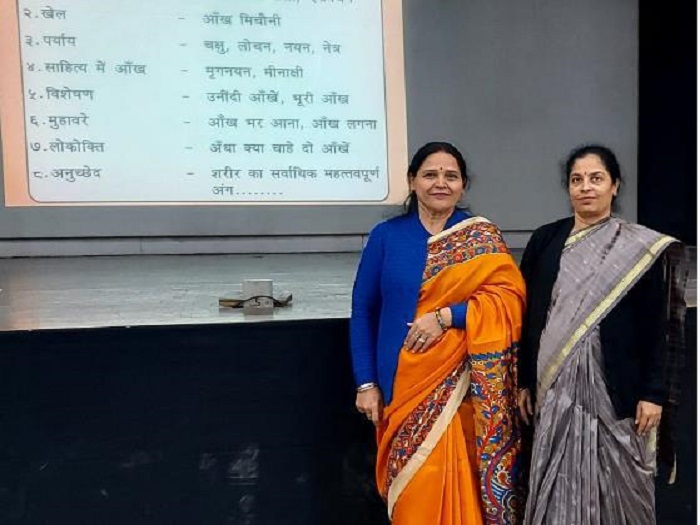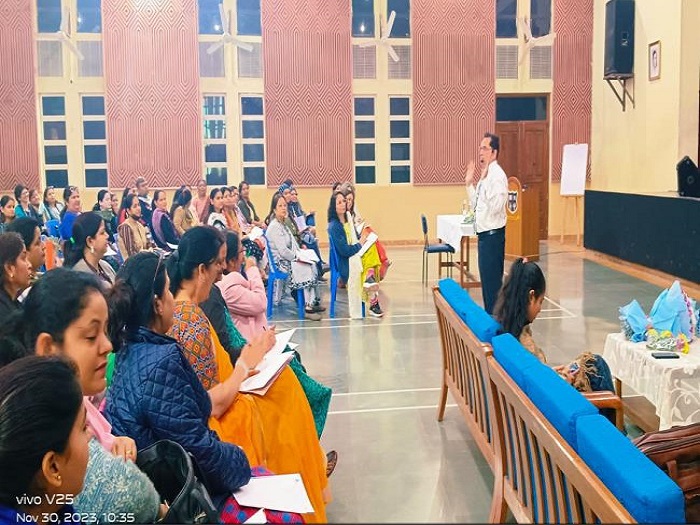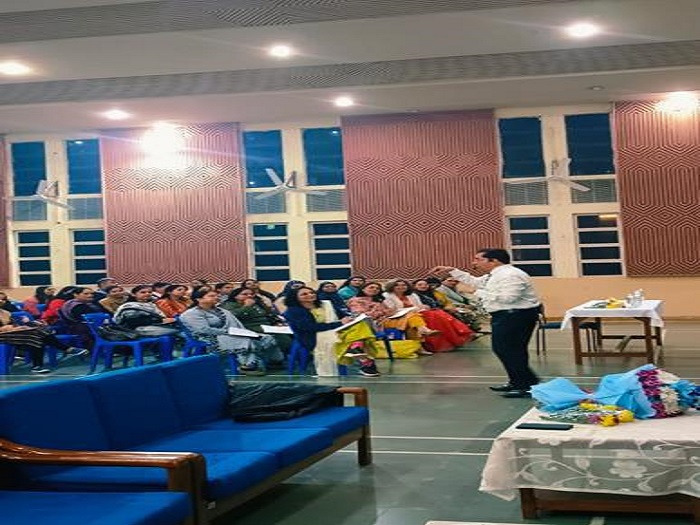Teacher workshop on NEP strategies for Hindi language teaching
Madhuban Publications organised a workshop on 30 November 2023 at Cambridge School, Srinivaspuri which focused on the National Education Policy (NEP) and its implications for teaching the Hindi language, specifically in relation to the National Curriculum Framework (NCF) and National Educational Research (NER). The workshop welcomed participants from various schools, including two Hindi teachers from our School, Dr Shikha Sharma and Ms Mridula Tewari.
The workshop was conducted by Dr Pradeep Kumar Jain, who is associated with the National Council of Educational Research and Training (NCERT) and is a member of the book writing committee. The workshop aimed to provide valuable insights into aligning Hindi teaching methodologies with the evolving educational landscape.
Dr Jain commenced the workshop by emphasising the core objective of the NEP, which is to equip students with skills necessary to confront challenges 15-20 years into the future. He painted a vivid picture, noting that a current first-grade student would graduate in the year 2035 and complete higher education in 2039-40. The importance of preparation for this futuristic scenario became evident through two illustrative stories, highlighting the differing approaches of the characters and underscoring the diligence, punctuality, and dedication essential in the teaching profession.
Turning the discussion to the NEP, Dr Jain stressed that teachers teaching primary classes should familiarise themselves with the National Curriculum Framework (NCF) for Foundational Stage-2022 from the NEP 2020 draft. For teachers teaching classes 6-12, he recommended studying the NCF for School Education 2023. He delved into the main features of NEP 2020, providing examples of how these could be seamlessly integrated into teaching and student assessment, particularly for grades 4-10.
Highlighting the significance of critical thinking in assessments, Dr Jain pointed out that a student’s writing is influenced by the environmen shaping his thoughts. In statement logic, he recommended formulating questions based on assertion and reasoning. Encouraging creative thinking, he suggested incorporating activities such as story-telling, news-reading, documentaries, interviews and diary entries, emphasising active participation over excessive writing.
Addressing the topic of holiday homework, Dr Jain advocated for a shift towards activities covering at least 4-5 components vis., listening, writing, speaking, reading and presentation. He urged educators to implement a multidisciplinary approach, stating that unseen passages in board papers often relate to subjects covered in textbooks. He also suggested that holiday homework given should be digital in form enabling students to use ICT tools.
Furthermore, Dr Jain emphasised the importance of experiential learning, integrated learning, art integration and cross-curricular learning as key features of the NEP. He concluded the workshop by encouraging teachers to embrace these methodologies, fostering a holistic and dynamic educational environment that aligns with the principles outlined in the National Education Policy.
In conclusion, the workshop provided valuable insights into the practical implementation of NEP guidelines in teaching of Hindi, equipping educators with the tools needed to prepare students for the challenges of the future.















